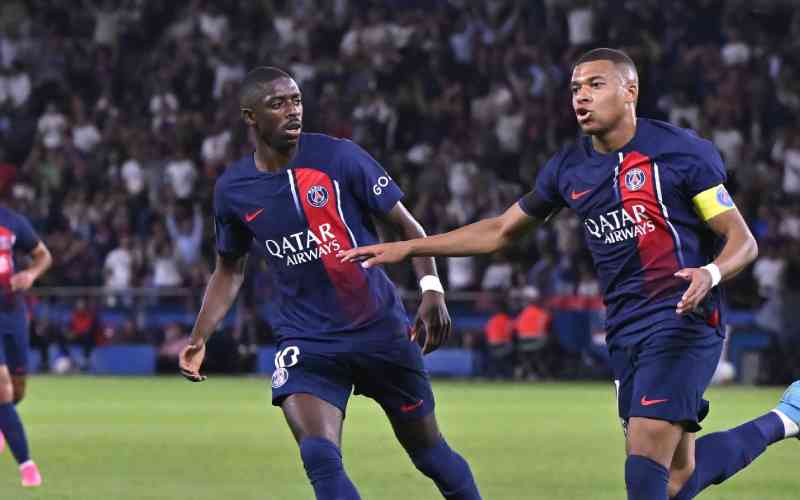Paris Saint-Germain (PSG) has long been a titan in domestic football, but the UEFA Champions League has proven to be a more elusive trophy for the Parisians. Despite boasting a roster filled with superstars, the club has often fallen short of its ambitions in European competitions. However, in recent years, PSG has made significant adjustments to its approach, both on and off the pitch. This article explores the evolution of PSG’s strategy in the Champions League and the factors influencing their quest for continental glory.
1. Historical Context: A Struggle for European Dominance
PSG’s quest for Champions League success began in earnest after the club’s takeover by Qatar Sports Investments in 2011. With substantial financial backing, PSG quickly transformed into a powerhouse, attracting top talents like Zlatan Ibrahimović, Neymar, and Kylian Mbappé. Despite these high-profile signings and domestic dominance, the club has often stumbled at crucial stages of the Champions League.
From their quarterfinal exits to the notorious «Remontada» against Barcelona in 2017, PSG has faced numerous setbacks that have raised questions about the team’s mentality and tactical approach in high-stakes matches. The pressure to succeed in Europe intensified, leading to a period of introspection and eventual evolution.
2. Tactical Adjustments: Embracing Flexibility
One of the most significant changes in PSG’s Champions League approach has been a shift towards tactical flexibility. Under the management of Thomas Tuchel and later Christophe Galtier, the club has adopted more dynamic formations and strategies to better suit the strengths of their players.
a. Formation and Style of Play
In past campaigns, PSG often relied on a rigid 4-3-3 formation that prioritized attacking play. However, recent seasons have seen a more fluid approach, with Tuchel experimenting with a three-man defense. This tactical shift has allowed the team to:
- Solidify Defense: A three-man backline, complemented by wing-backs, has provided greater defensive stability. This adjustment has allowed PSG to control games better and withstand counter-attacks from top European clubs.
- Maximize Player Strengths: With the likes of Neymar and Mbappé, PSG can exploit width and pace on the flanks. The flexibility of their formation has allowed these players to operate in more advantageous positions, enhancing their offensive threat.
- Enhance Midfield Control: Adopting a more compact midfield structure has helped PSG dominate possession and dictate the tempo of matches. This control has been crucial in European ties, where opponents often employ a high-pressing game.
3. Squad Depth and Management
Another critical change in PSG’s Champions League approach has been the emphasis on squad depth and rotation. Injuries have plagued the club during crucial stages in previous campaigns, highlighting the need for a well-rounded squad capable of competing at the highest level.
a. Recruitment Strategy
In recent transfer windows, PSG has focused on acquiring players who can contribute not only in terms of skill but also in depth. The arrivals of Achraf Hakimi, Nuno Mendes, and Vitinha have bolstered the squad, providing options in various positions. This strategic recruitment has allowed the club to field competitive lineups throughout the long and grueling Champions League campaign.
b. Injury Management
Additionally, PSG has implemented better injury management protocols to ensure that key players remain fit and available during critical matches. The club has invested in sports science and medical staff to monitor players’ conditions and prevent burnout, particularly for those with demanding international schedules.
4. Mental Resilience: Overcoming Psychological Barriers
Beyond tactical and squad-related changes, PSG has also sought to address the psychological challenges that have hindered their European campaigns. The weight of expectation can be overwhelming for players, especially in high-stakes matches.
a. Building a Winning Mentality
To foster a winning mentality, PSG has brought in experienced players who have succeeded in European competitions, such as Sergio Ramos. The presence of seasoned professionals can help instill confidence and provide guidance during crucial moments.
b. Mental Conditioning Programs
Furthermore, the club has recognized the importance of mental conditioning and has integrated psychological training into their preparation routines. Mental resilience training focuses on helping players cope with pressure, maintain composure, and perform at their best when it matters most.
5. Focus on Team Chemistry and Cohesion
PSG has also emphasized the importance of team chemistry in their Champions League campaigns. In previous seasons, the team often appeared disjointed, with star players struggling to find a cohesive understanding on the pitch.
a. Pre-Season Tours and Bonding Activities
To address this issue, the club has organized pre-season tours and bonding activities aimed at strengthening relationships among players. These initiatives allow team members to connect off the pitch, fostering a sense of unity that translates into improved performances during matches.
b. Improved Communication
Under Galtier, the emphasis on communication during games has increased. By encouraging players to communicate effectively on the field, PSG has improved its ability to adapt to changing game situations and work together as a cohesive unit.
6. Recent Campaigns: Signs of Progress
The changes in PSG’s Champions League approach have yielded promising results in recent campaigns. In the 2020-21 season, the club reached the semifinals, showcasing its tactical evolution and resilience against top opponents. Last season, they managed to navigate the group stage with relative ease, advancing to the knockout rounds with a strong performance against formidable rivals.
While PSG faced a disappointing exit in the round of 16, the team’s overall performances were indicative of growth. They demonstrated an ability to compete against elite clubs and showed flashes of the potential that could lead to Champions League success.
7. Looking Ahead: The Quest for European Glory
As PSG embarks on its latest Champions League campaign, the club is focused on building upon its recent progress. The combination of tactical flexibility, squad depth, and a winning mentality positions the club to compete more effectively against Europe’s elite.
However, the road to Champions League glory remains fraught with challenges. Clubs like Manchester City, Bayern Munich, and Real Madrid are consistently formidable opponents, and PSG must continue to adapt and evolve to keep pace with the competition.
In conclusion, PSG’s recent Champions League campaigns have seen significant changes in their approach. By embracing tactical flexibility, enhancing squad depth, fostering mental resilience, and improving team chemistry, PSG is taking vital steps toward achieving its long-desired goal of European success. As the club continues its journey, fans remain hopeful that the elusive Champions League trophy will soon find its way to the Parc des Princes.


